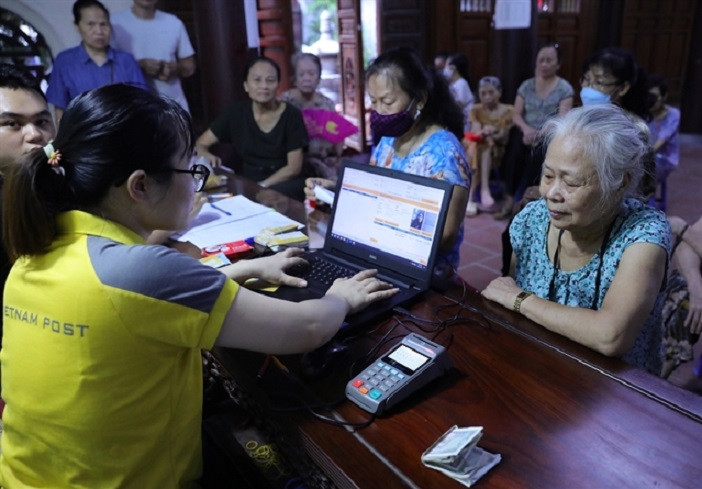
The raise is scheduled to take effect on July 1, 2024, with the simultaneous entry into force of the basic and regional minimum wage increases. However, the exact amount of the raise remains up for debate.
In the government meeting on March 6, MoLISA suggested retirement pensions and social insurance benefits be increased by 15 per cent, preferential benefits for those who have served the nation by 29.2 per cent, and social welfare benefits from VNĐ360,000 (US$14.6) to VNĐ750,000 ($30.4).
The Ministry of Finance (MoF) was not all for the proposal. A MoF representative estimated it would require more than VNĐ17 trillion ($700 million) of the State Budget to finance the fiscal scheme, resulting in a breach of fiscal limits set by the National Assembly for 2024.
"MoLISA is advised to revise the fiscal scheme to bring it in line with the Law on Social Insurance, Resolution 28 by the Central Party Committee, and the fiscal plans of the State Budget and the Vietnam Social Security," said the representative.
Meanwhile, an expert on social welfare subscribed to MoLISA's proposal. He asserted that amid an income per capita growth of $160 and CPI growth of 3.25 per cent between 2022 and 2023, a rise of 15 per cent in pensions is highly recommendable.
"Not only will the rise in pensions allow people to reap the benefits of economic growth, but it will also boost their confidence in the social welfare system," said the expert.
The Vietnam Social Security (VSS) pressed for another proposal to narrow the gap between pensioners before the pension reform and those receiving pensions starting from July 1, 2024.
If the proposal is approved, the State Budget must set aside VNĐ1.9 trillion ($77 million) in the last six months of the year and Vietnam Social Security, VNĐ6.9 trillion ($280 million), to cover it.
Nguyễn Thị Lan Hương, former Director of the Institute of Labour Science and Social Affairs, believes that MoLISA's proposal is a better option for Việt Nam than that of VSS, given the country's current economic situation.
The former director suggested establishing a minimum pension threshold to reflect the minimum adequate standard of living, based on which pensions will be adjusted to safeguard low-income pensioners.
"If pension levels fall below the threshold, the Government will fill the gap with a fixed pension raise," said Hương.
Việt Nam has around 14.4 million people of retirement age but only 3.3 million of them receive monthly pensions and benefits from VSS, and 1.8 million from the State Budget.
Vietnamese pensioners can be entitled to up to 75 per cent of their salary as pensions. However, their average pension level stands at just VNĐ5.4 million ($219) per month due to low pension premium rates.
Between 2016 and 2023, the Government raised pensions and benefits six times: by 8 per cent year-by-year in 2016, 7.44 per cent in 2017, 6.92 per cent in 2018, 7.19 per cent in 2019, 7.4 per cent in 2022 and 12.5 per cent last year. — VNS